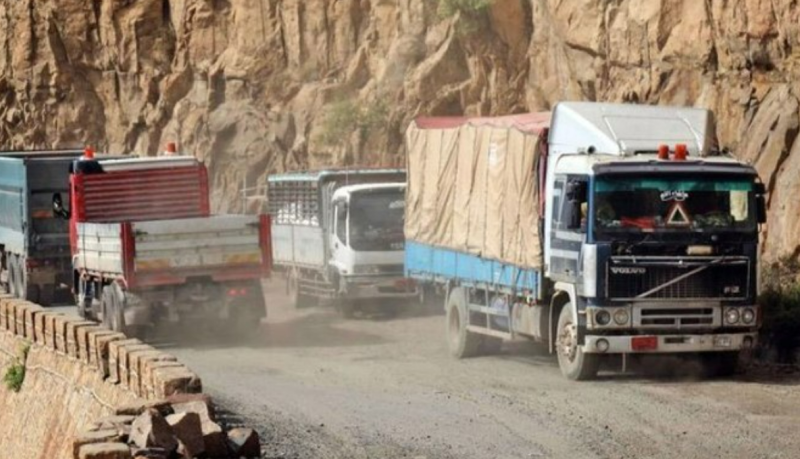GCC officials urge unity against Iranian threats


Iran’s expansionist policies factored heavily in the 15th edition of Bahrain’s Manama Dialogue, a three-day event organised by the International Institute for Strategic Studies and attended by defence and security officials as well as global experts.
Bahraini officials directed harsh criticism at the Islamic Republic’s policies towards regional states, accusing Tehran of “attempting to impose hegemony.”
Addressing the security event, Bahraini Foreign Minister Sheikh Khalid al-Khalifa cited Iran’s “interference” in the affairs of Bahrain and several other Arab countries.
“In my country Bahrain, we have experienced the full brunt of Iran’s interference for almost 40 years,” he said.
“Despite periods of increased cooperation and despite our numerous efforts over the years to have better relations, Iran just doesn’t seem capable of viewing Bahrain as anything other than a target.”
Khalifa went on to underscore what he said was Iran’s blatant interference in other regional countries.
“Iran continues to impede Iraq’s progress as a modern state… In Syria, Iranian militias have established a substantial presence to establish long-term control… In Yemen, Iran continues to back the Houthi terrorist group and [is] benefiting from the conflict in the country,” he said.
Khalifa added that in Lebanon, the Iranian interference has led to “stagnation and paralysis” in the country’s political system and “continued confrontations” at home and with neighbouring countries through Tehran’s “terrorist proxy” Hezbollah group.
The United Arab Emirates also accused Iran of being a bad neighbour.
“Iran’s expansionist policy is one of the reasons for instability in the region,” UAE Minister of State for Foreign Affairs Anwar Gargash said, a November 23 report by Al Arabiya TV stated.
Gargash stressed “the necessity to resolve the crisis of Iran’s ballistic missiles with joint regional diplomatic efforts.”
Saudi Minister of State for Foreign Affairs Adel al-Jubeir compared some international policies towards Iran to Adolph “Hitler’s appeasement policy.”
“When the Iranian foreign minister presented guarantees to the UK and the government of Gibraltar that the Iranian tanker [Adrian Darya I] would not offload its cargo in Syria, then the vessel ends up delivering the shipment to Syria, we have two problems: The Iranian minister is being deceptive, which is odd, or the foreign minister does not know the intentions of his government, which is worse. Therefore, Hitler’s appeasement policy will not work with the Iranian regime,” al-Jubeir said in the Al Arabiya report.
“The world must unite against Iran and send a clear message that its behaviour is unacceptable,” al-Jubeir stressed, adding that “killing diplomats, bombing embassies, fanning the flames of sectarianism, meddling in other states’ affairs are unacceptable.”
“Saudi Arabia wants to see Iran a prosperous and respectable nation but it has to abandon destruction, respect sovereignty and comply with international law,” Jubeir added.
The harsh rhetoric from Gulf officials comes after revelation that the September 14 attacks that hit Aramco’s Khurais oil installation and the Abqaiq oil processing facility were personally approved by Iranian Supreme Leader Ayatollah Ali Khamenei and meticulously developed over several months.
Reuters reported that Khamenei gave the go-ahead to the operation, which was intended to punch the United States for pulling out of the nuclear deal, under the strict conditions that “Iranian forces must avoid hitting any civilians or Americans.”
The drone and cruise missile attack overseen by Iran’s Islamic Revolutionary Guard Corps resulted in temporarily compromising 50% of the kingdom’s oil production, while also spiking global crude prices.
US Under Secretary of Defence for Policy John C. Rood said that “in the last six months alone, Iran has sought to disrupt the freedom of navigation and the global economy and destabilise its neighbours through direct attacks and through its proxies in Yemen, Syria, Lebanon and Iraq.”
“Unfortunately, with this May’s attacks on tankers transiting the Strait of Hormuz and Tehran’s attack on Aramco oil facilities in Saudi Arabia in September, Iran has made clear its intent to continue a pattern of aggressive and malign behaviour that is destabilising,” Rood said, adding that these attacks are not merely a regional or US problem but a threat to global security and the global economy and are “necessitating an international response.”

At least 13 people died in road accidents in two Yemeni provinces this week, the latest in a series of crashes that have claimed the lives of dozen…

The UAE’s President Sheikh Mohamed bin Zayed Al-Nahyan met with Russian President Vladimir Putin during a visit to St. Petersburg on Tuesday…

The Omani capital of Muscat was preparing today to welcome Sheikh Mohammed bin Zayed Al Nahyan, President of the United Arab Emirates, on hi…